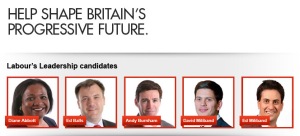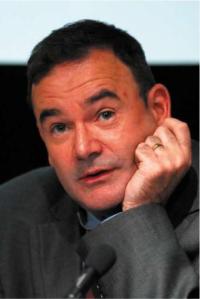 Remarkably, tax has reappeared on the political agenda. Following the direct action activities of UK Uncut, popular attention is now being focussed on tax evasion by large corporations, something with the government is now pledging to address. Even more surprisingly, there have been some Conservative thinkers that have been suggesting that certain taxes could be raised, namely wealth taxes on assets rather than earning. All this is in striking contrast to the New Labour era, when any raising of income tax was taboo, and increases in spending had to be funded largely by growth and debt (including PFI). But this new mood has not extended to any discussion of taxation in general, and why it might be necessary. It is still often viewed as a bad thing, or an unfortunate necessity. On a recent edition of Newsnight in which MPs were asked what the point of tax was, the answers given were distinctly underwhelming, each falling back on some version of ‘we need tax to fund public services’. Such confusion and obfuscation is typical of the current debate around tax—while everyone wants more of it on ‘the rich’ and less on themselves, philosophical explanations for taxation are rarely articulated. We need to go beyond this and investigate the differing rationales for taxation, the different ideologies that they spring from, and the position on private property that each ideology ultimately relies upon.
Remarkably, tax has reappeared on the political agenda. Following the direct action activities of UK Uncut, popular attention is now being focussed on tax evasion by large corporations, something with the government is now pledging to address. Even more surprisingly, there have been some Conservative thinkers that have been suggesting that certain taxes could be raised, namely wealth taxes on assets rather than earning. All this is in striking contrast to the New Labour era, when any raising of income tax was taboo, and increases in spending had to be funded largely by growth and debt (including PFI). But this new mood has not extended to any discussion of taxation in general, and why it might be necessary. It is still often viewed as a bad thing, or an unfortunate necessity. On a recent edition of Newsnight in which MPs were asked what the point of tax was, the answers given were distinctly underwhelming, each falling back on some version of ‘we need tax to fund public services’. Such confusion and obfuscation is typical of the current debate around tax—while everyone wants more of it on ‘the rich’ and less on themselves, philosophical explanations for taxation are rarely articulated. We need to go beyond this and investigate the differing rationales for taxation, the different ideologies that they spring from, and the position on private property that each ideology ultimately relies upon.
Tag Archives: Socialism
Left Without a Left
At the start of the Labour leadership campaign, before MP’s nominations had been recorded, things looked pretty hopeful for those seeking a radical change from the New Labour era. It seemed likely that John Cruddas, unofficial leader of the intelligent ‘soft left’, and representative of the (modernising left) pressure group Compass, would stand. He seemed set to combine the sensibility of the intellectual (holding a PhD in philosophy) with the groundedness of the activist, in touch with working class concerns around housing, minimum wage implementation and privatisation. It also seemed likely that John McDonnell, who was prevented from challenging Gordon Brown in 2007 through lack of MPs support, would also be a candidate. McDonnell, an MP since 1997, and a backbencher throughout the Labour government years is chair of the (hard left) Campaign Group and holds beliefs consistent with this; stridently anti-war, anti-privatisation and unapologetically socialist. He combines these views with great intelligence, great wit and a good deal of charm. He would have been a great voice in the leadership debate, articulating the case for genuinely left wing policies, forcing the more centrist candidates (centre right?) to justify their policies in a way that Blair of Brown never had to. Would either have had a chance? In the case of McDonnell, no, in the case of Cruddas, a very small one. They would, however, have set the debate on fire, forcing a serious re-evaluation of the New Labour era and an open consideration of what might be the way forward.
Sadly, neither made it on to the shortlist. Cruddas ruled himself out, saying that he didn’t believe he had the qualities necessary to be leader, let alone Prime Minister, and that instead he wanted to influence the policy debate and be a debate between the grassroots and the leadership. On the one hand this seemed pretty selfless, Cruddas lacking the ego necessary to want to be leader, his desire being only to get particular policies implemented. On the other hand, his decision could be seen as rather selfish. He didn’t wish to have the vast pressure and personal scrutiny that comes with being leader; this is understandable, but if so, isn’t it a mistake to go into politics at all? The only way for agendas to be implemented, for policies to be put into practice is for someone to step up to the plate and put their name to them. If the left is too principled or fearful to fight for the leadership then we’ll be forever saddled with unprincipled careerists of the right whose deepest thoughts concern how to keep Rupert Murdoch on side. If Cruddas had stood and (as most likely) come a respectable second or third, he’d have been guaranteed a shadow cabinet role and chance to build a real power base from which to set an agenda; as it is he faces another 5 years on the back benches, respected yes, but without any real influence.


